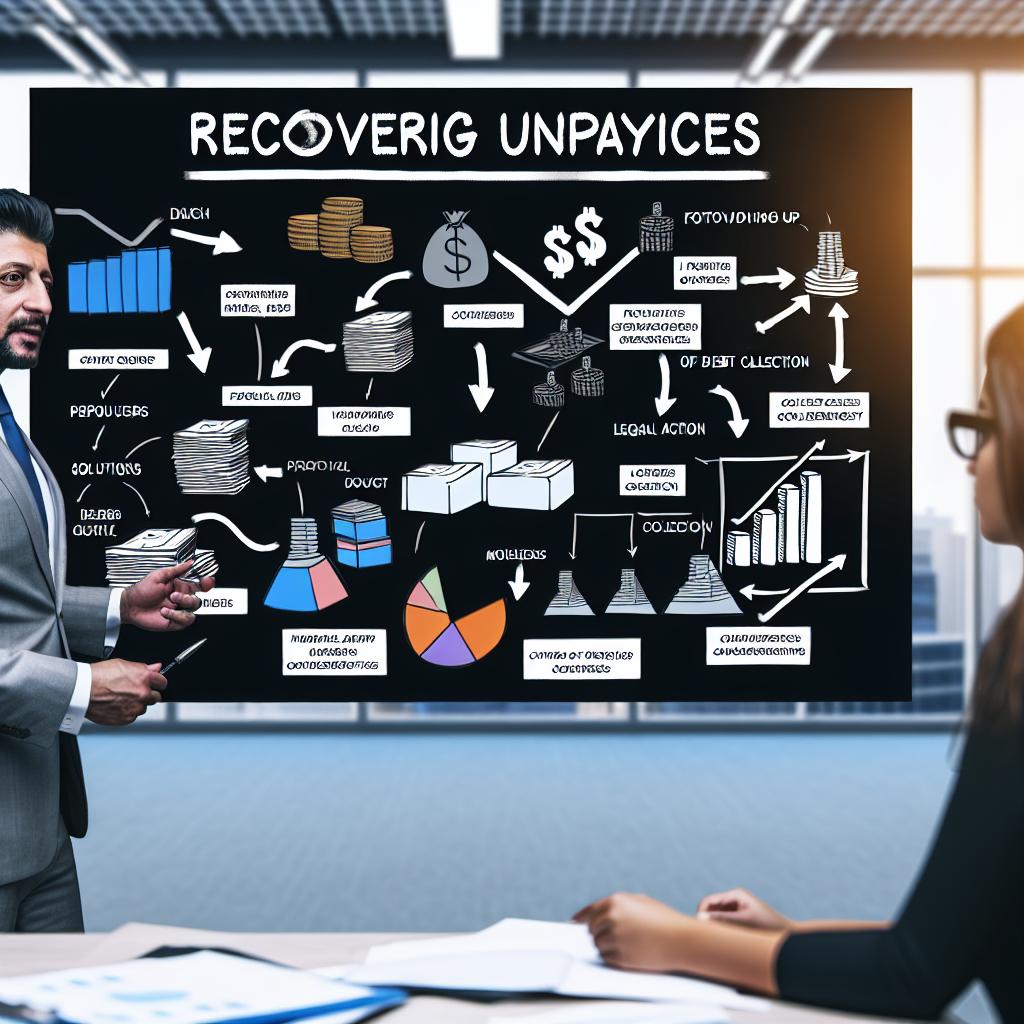Understanding Unpaid Invoices
In the vast arena of business transactions, the issue of unpaid invoices often looms large, with potential to significantly disrupt cash flow and jeopardize financial stability. It is crucial for businesses to address these outstanding payments with speed and efficiency to maintain their operational health.
Proactive Communication
An integral strategy in managing unpaid invoices is initiating proactive communication with clients. Being open and transparent can often resolve payment delays. It is advisable to approach this by establishing professional contact, either through a phone call or a personalized email, to gently remind your client about the outstanding payment. This method of direct communication typically encourages swift action from the client, hastening the payment process.
Offer Flexible Payment Options
Clients can sometimes struggle with cash flow issues that hinder their ability to pay invoices in full. By presenting flexible payment options, you may ease this burden. Introducing installment plans, for example, can provide a practical alternative for your clients to manage their dues. Such flexibility also has the added benefit of reinforcing and strengthening your business relationship, as it exhibits your understanding and willingness to accommodate their financial situations.
Implementing Late Payment Penalties
Another effective tactic for encouraging timely invoice settlements is the implementation of late payment penalties. Clearly detailing these penalties in your invoice terms and conditions can act as a substantial deterrent to delayed payments. The knowledge that additional costs will accrue as a result of late payments often motivates clients to make their payments promptly.
Review and Adjust Payment Terms
It is prudent for businesses to periodically review their payment terms to ensure they align with current industry standards and are structured to effectively encourage timely payments. By adjusting these terms when necessary, you can preemptively alleviate future issues related to unpaid invoices, thereby maintaining smoother financial operations.
Letter of Demand
In instances where open communication does not yield the desired result, escalating to a formal letter of demand may prove effective. This document clearly articulates the request for payment and delineates the subsequent steps should payment not be received. The issuance of a letter of demand serves as an official record of your request for payment, underscoring the seriousness of the matter to the client.
Consider Collection Agencies
When internal attempts to retrieve unpaid invoices fall short, involving a professional collection agency might be the next logical step. It is essential to select an agency with an established track record within your industry. These agencies are equipped with both the expertise and resources to efficiently recover outstanding debts, potentially resolving the issue more swiftly than continued internal efforts might.
Legal Action as a Last Resort
Although taking legal action is generally regarded as a last resort due to the associated costs and the potential to impair client relationships, it may be necessary in circumstances involving significant amounts. Legal action serves to protect your financial interests when other avenues have been exhausted and the debt remains unpaid.
Document Everything
Throughout the process of managing unpaid invoices, it is vital to meticulously document every communication and action taken. This thorough documentation is crucial, especially if the situation escalates to requiring legal intervention, providing a comprehensive record of your efforts to recover the outstanding debt.
Prevention Strategies
In addition to recovering existing unpaid invoices, establishing preventive measures can mitigate the recurrence of such issues. Conducting credit checks on new clients and requiring upfront deposits are effective and practical steps toward minimizing future unpaid invoices.
Invest in Invoicing Software
The incorporation of invoicing software can greatly optimize your billing process. These automated tools ensure that invoices are dispatched promptly, allow for efficient tracking of outstanding payments, and provide regular reminders to clients. Investing in such software can substantially decrease the frequency of unpaid invoices over time, streamlining your operations and enhancing overall financial stability.
In conclusion, when implementing such strategies, it is important to tailor them to the specific needs and context of your business. Regularly reviewing and refining your approach is a necessary practice, contributing to effective management of unpaid invoices and promoting a healthier financial environment within your business.
